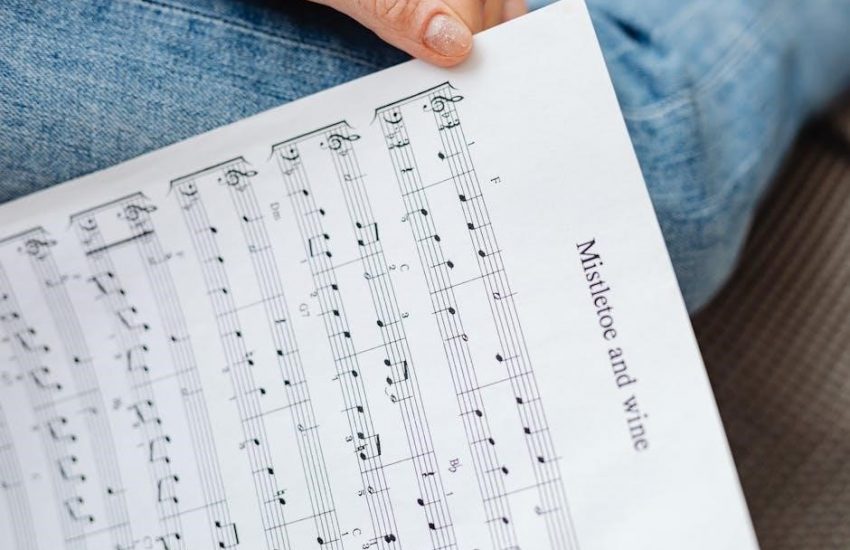the odyssey pdf robert fitzgerald
Robert Fitzgerald’s translation of The Odyssey is renowned for its poetic elegance and faithfulness to Homer’s original work. His 1961 version, awarded the Bollingen Prize, balances lyrical prose with scholarly precision, making it a timeless classic for modern readers.
Overview of Robert Fitzgerald and His Work
Robert Fitzgerald, a celebrated American poet and translator, is best known for his esteemed translation of Homer’s The Odyssey. Born in 1910 and passing in 1985, Fitzgerald’s work bridged classical literature and modern readability. His translation, first published in 1961, is praised for its poetic fluency while remaining faithful to Homer’s original intent. Fitzgerald’s approach combined scholarly precision with a lyrical style, making ancient Greek epic poetry accessible to contemporary audiences. His version of The Odyssey has become a standard for scholars and readers alike, earning the Bollingen Prize for Poetry Translation in 1961. Fitzgerald’s legacy endures as a masterful interpreter of classical texts.
The Significance of Fitzgerald’s Translation
Robert Fitzgerald’s translation of The Odyssey holds profound significance as it masterfully captures the epic’s essence while adapting it for modern readers. His work is celebrated for its poetic beauty and fidelity to Homer’s original text, making it a benchmark for translations. Fitzgerald’s version has sold over two million copies since 1961, becoming a cornerstone for educational and literary purposes. It bridges the gap between ancient Greek culture and contemporary understanding, ensuring The Odyssey’s timeless themes resonate with new generations. His translation’s enduring popularity underscores its ability to preserve the epic’s emotional depth and narrative richness, solidifying its place in literary history.
Publishing History and Editions of The Odyssey PDF
Robert Fitzgerald’s translation of The Odyssey was first published in 1961 and has since become a classic. The Noonday Press released a new edition, showcasing Fitzgerald’s lyrical prose. A PDF version is widely available, offering the original Greek text, Fitzgerald’s translation, and scholarly notes. This format has made the epic accessible to modern readers, ensuring its enduring popularity. The translation’s success is evident in its over two million copies sold, solidifying its status as a foundational text for students and scholars alike. Fitzgerald’s work remains a trusted resource, bridging ancient literature with contemporary accessibility.
The Epic Poem: Structure and Content
The Odyssey is a 24-book epic poem chronicling Odysseus’s journey home after the Trojan War. Its narrative explores themes of homecoming, heroism, and divine influence, blending action and emotion.

The Odyssey as a Sequel to The Iliad
The Odyssey follows the events of The Iliad, recounting Odysseus’s arduous journey home after the Trojan War. While The Iliad focuses on the war itself and Achilles’ rage, The Odyssey explores the aftermath, delving into themes of homecoming and survival. Robert Fitzgerald’s translation masterfully bridges the gap between the two epics, capturing the continuity of Odysseus’s story. His rendition preserves the poetic grandeur of Homer’s original, ensuring the transition from war to wandering remains seamless and compelling for modern readers. This sequel not only completes the narrative of the Trojan War but also deepens the understanding of its heroes and their fates.
Key Themes: Homecoming, Heroism, and Divine Intervention
In Robert Fitzgerald’s translation of The Odyssey, the themes of homecoming, heroism, and divine intervention are intricately woven. Homecoming, or nostos, is central as Odysseus faces myriad challenges to reunite with his family and kingdom. Heroism is explored through Odysseus’s cunning and resilience, defining his character as a mortal striving against divine and human obstacles. Divine intervention, particularly from Athena and Poseidon, illustrates the gods’ influence on mortal affairs, adding layers of complexity. Fitzgerald’s translation elegantly captures these themes, making them accessible and vivid for modern readers while remaining faithful to Homer’s original intent and poetic vision.
Major Characters: Odysseus, Penelope, and the Gods
Odysseus, the cunning and resilient king of Ithaca, is the epic’s central figure, embodying the struggle of a mortal striving to reclaim his home and identity. Penelope, his loyal wife, represents steadfast fidelity and wisdom, weaving her strategies to delay remarriage. The gods, particularly Athena and Poseidon, play pivotal roles, with Athena championing Odysseus and Poseidon opposing him. Fitzgerald’s translation vividly portrays these characters, capturing their complexities and the divine-human dynamics that shape the narrative. Together, they form the heart of The Odyssey, exploring themes of loyalty, power, and destiny in a richly detailed ancient world. Fitzgerald’s prose enhances their timeless appeal.

Fitzgerald’s Translation Style and Approach
Robert Fitzgerald’s translation of The Odyssey blends poetic elegance with scholarly precision, capturing Homer’s epic drama and emotional depth. His supple verse ensures the classic remains accessible and artistically vivid for modern readers, balancing fidelity with creative expression.
Use of Language and Poetic Devices
Robert Fitzgerald’s translation of The Odyssey masterfully employs language that mirrors Homer’s poetic grandeur. His use of rhythmic prose and evocative imagery ensures the epic’s emotional depth and dramatic intensity resonate vividly. Fitzgerald’s verse retains the original’s poetic devices, such as similes and metaphors, while adapting them to a modern idiom. His translation avoids archaic language, making the ancient tale accessible without losing its timeless essence. This approach ensures that the poetic richness of Homer’s work is preserved, allowing modern readers to connect with Odysseus’s journey on both an intellectual and emotional level.
Fidelity to Homer’s Original Text
Robert Fitzgerald’s translation of The Odyssey remains remarkably faithful to Homer’s original Greek text. Fitzgerald carefully preserved the epic’s structure, themes, and character dynamics, ensuring the essence of Homer’s narrative was intact. His translation captures the poetic nuances and dramatic intensity of the original, maintaining the historical and cultural context. While Fitzgerald’s prose is modern and accessible, it stays true to Homer’s intent, balancing fidelity with readability. This approach earned his work the Bollingen Prize, recognizing its excellence in translating poetic masterpieces. Fitzgerald’s version is thus both a scholarly achievement and a literary triumph, honoring Homer’s legacy while engaging contemporary readers.
Impact of Fitzgerald’s Translation on Modern Readers
Robert Fitzgerald’s translation of The Odyssey has profoundly influenced modern readers by making Homer’s ancient epic accessible and engaging. His lyrical prose resonates with contemporary audiences, bridging the gap between the original Greek text and modern English. The translation’s clarity and poetic beauty have introduced the story of Odysseus to generations of readers, inspiring new interpretations and adaptations in literature, art, and education. Fitzgerald’s work remains a cornerstone in academic curricula and a favorite among general readers, ensuring that The Odyssey continues to captivate and inspire, maintaining its relevance in today’s cultural landscape while preserving its timeless themes and universal appeal.

Historical and Cultural Context
The Odyssey, rooted in ancient Greek culture, reflects values like hospitality and divine influence. Composed around 800 BCE, it captures the era’s societal norms and mythical traditions, shaping its enduring legacy.
The Trojan War and Its Legacy
The Trojan War, a pivotal event in Greek mythology, occurred around 1200 BCE. It began when Helen, the queen of Sparta, was abducted by Paris of Troy, sparking a decade-long conflict. The war not only shaped the fate of Troy but also influenced Greek culture, emphasizing honor, heroism, and divine intervention. Its legacy endures in literature, particularly in Homer’s epics, as a symbol of human struggle and the complexities of war. The Odyssey reflects this legacy, exploring the aftermath of the war and its impact on Odysseus’s journey home. The war’s themes remain central to Western literary tradition.
Ancient Greek Values Reflected in The Odyssey
The Odyssey mirrors ancient Greek values such as xenia (hospitality), nostos (homecoming), and arete (excellence). Hospitality is central, as seen in Odysseus’s interactions with hosts and the suitors’ abuse of xenia. The pursuit of excellence drives Odysseus’s perseverance and cunning. Divine intervention highlights the Greeks’ belief in fate and the gods’ influence on human affairs. Fitzgerald’s translation captures these themes, preserving the cultural essence of Homer’s original text. These values resonate with modern readers, illustrating the timeless relevance of ancient Greek ideals in Fitzgerald’s masterful rendition of The Odyssey.
The Role of the Gods in The Odyssey
The gods play a pivotal role in The Odyssey, influencing Odysseus’s journey and fate. Athena supports him, while Poseidon opposes him, showcasing divine control over mortal destiny.
Athena: Odysseus’s Protector
Athena, the goddess of wisdom, emerges as Odysseus’s steadfast protector, guiding him through his perilous journey. She intervenes on his behalf, advising Telemachus and aiding Odysseus’s return to Ithaca. Her divine support is crucial, ensuring his survival and triumph over the suitors, highlighting her pivotal role in his destiny.
Poseidon: The Antagonistic Force
Poseidon, the powerful god of the sea, stands as a formidable antagonist to Odysseus, fueled by his wrath over the blinding of his son, Polyphemus. In Fitzgerald’s translation, Poseidon’s fury is vividly depicted through the relentless storms and maritime obstacles he unleashes upon Odysseus, underscoring the god’s unyielding vengeance. Fitzgerald’s poetic language captures the intensity of Poseidon’s anger, illustrating the divine challenges Odysseus must endure. This portrayal highlights the complex interplay of fate and free will, as Odysseus navigates not only natural perils but also the wrath of a god, adding depth to the epic narrative.
Key Episodes and Their Interpretation
Episodes like the Lotus-Eaters and the Sirens highlight Odysseus’s resilience and the allure of forgetfulness, showcasing Fitzgerald’s skill in translating Homer’s timeless themes of temptation and perseverance.
The Lotus-Eaters and the Sirens
The encounters with the Lotus-Eaters and the Sirens are pivotal episodes in The Odyssey, showcasing Odysseus’s cunning and the allure of forgetfulness. In Book 9, the Lotus-Eaters offer a life of blissful forgetfulness, testing Odysseus’s resolve to return home. Fitzgerald’s translation captures the hypnotic beauty of their world, emphasizing the tension between comfort and duty. Similarly, the Sirens in Book 12 embody irresistible temptation, their song luring sailors to destruction. Odysseus’s strategy of having himself tied to the mast highlights his intelligence and foresight, while his crew’s wax-plugged ears illustrate the human struggle between desire and discipline. These episodes, masterfully rendered by Fitzgerald, underscore the Odyssey’s exploration of human frailty and resilience.
The Cyclops and the Journey to Hades
In Robert Fitzgerald’s translation, the encounter with the Cyclops Polyphemus and the journey to Hades are vividly portrayed as pivotal moments in Odysseus’s quest. The Cyclops episode in Book 9 highlights Odysseus’s cunning and bravery, as Fitzgerald’s verse masterfully captures the monster’s brutality and the hero’s clever escape. The journey to Hades in Book 11 is rendered with haunting beauty, evoking the eerie atmosphere of the underworld. Fitzgerald’s translation conveys the emotional depth of Odysseus’s meetings with the shades, particularly his poignant reunion with his mother. These episodes, rich in drama and psychological complexity, showcase Fitzgerald’s ability to preserve Homer’s epic grandeur while making it accessible to modern readers.
Robert Fitzgerald’s translation of The Odyssey remains a masterpiece, blending poetic style with fidelity to Homer’s original. Its enduring appeal lies in its ability to captivate modern readers while preserving the epic’s timeless essence.

Why Fitzgerald’s Version Remains Relevant
Robert Fitzgerald’s translation of The Odyssey remains highly relevant due to its masterful blend of poetic elegance and fidelity to Homer’s original text. Published in 1961, it has sold over two million copies, becoming a standard for scholars and poets alike. Fitzgerald’s supple verse captures the epic’s grandeur and emotional depth, making it accessible to modern readers. Its enduring popularity is a testament to its ability to resonate across generations, ensuring that Homer’s timeless tale continues to captivate audiences today.
The Odyssey’s Universal Appeal
The Odyssey endures as a timeless epic, transcending cultures and centuries with its universal themes of homecoming, perseverance, and the human condition. Fitzgerald’s translation captures the emotional depth and grandeur of Homer’s original, resonating with readers through its vivid storytelling. The struggles of Odysseus, the cunning hero, and the divine interventions reflect fundamental human experiences—striving, suffering, and seeking meaning. This universal appeal ensures that Fitzgerald’s rendition remains a beloved classic, connecting modern audiences to ancient wisdom and emotions, making The Odyssey a work of enduring global significance and literary treasure. Its relevance continues to inspire new generations of readers and scholars alike.


